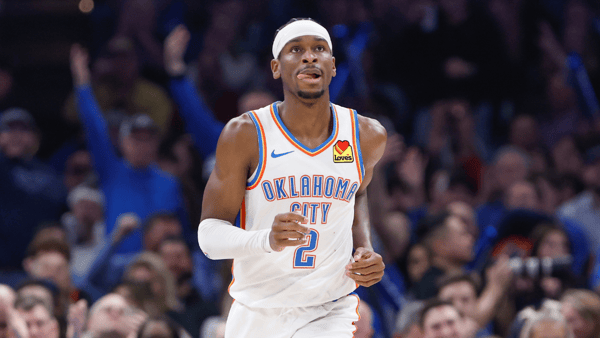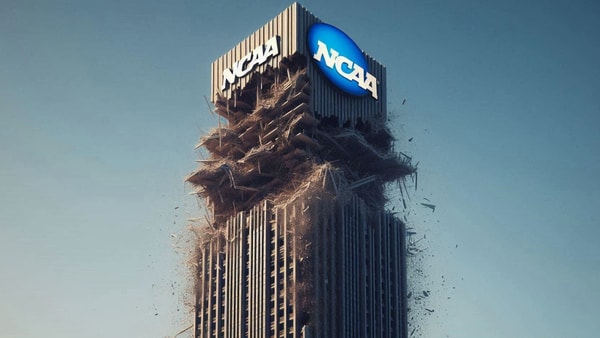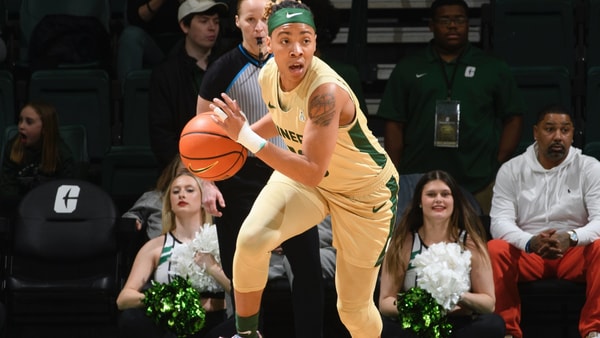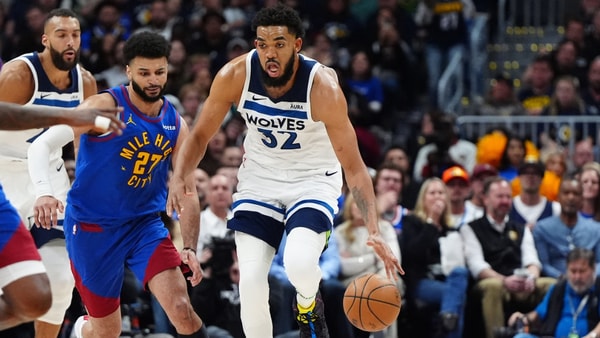The Streaming Wars are Upon Us: Will Netflix be Dethroned?

Photo from Consider the Consumer (https://considertheconsumer.com/consumer-news/new-streaming-services)
Legend has it that when Japan bombed Pearl Harbor, Isoroku Yamamoto said they had “awakened a sleeping dragon” in the United States. In 2007, Netflix waged a similar attack on television networks and Hollywood studio executives by launching its now ubiquitous streaming platform. In so doing, they appear not to have awaken a sleeping dragon, but a rabble of befuddled salamanders who over a decade later have just ascertained the presence of a threat.
Netflix has housed a plethora of film and television from a multitude of studios and networks. That is the base appeal: the television people formerly had to either watch live – where oftentimes shows overlap, leaving one to pick favorites – or buy DVDs of (ugh) are instead all online for a nominal fee. Movies that one missed in theaters but may not want to bother renting individually are clustered together. The vast collection that Netflix and its ilk (namely Hulu and Amazon Prime) hold have made media consumption easier and more widespread. People are consuming more content now than ever before.
The streaming model has thrown traditional television and film into a fluster. With a growing number of people cutting cable subscriptions to instead feed off streaming , and fewer people going to see non-Avengers fare in theaters, Hollywood is spiraling into madness.
Television has tried to bring viewers back into its arms through a number of varied and middling methods. One such is the “double-screen” experience. As an episode of say, Breaking Bad, airs live, you can simultaneously watch behind the scene footage and episode analyses about the episode. Many networks also keep the ten most recent episodes of their shows on their respective mobile apps, so people who missed the first three episodes of Riverdale season three can catch up before episode four airs. Of course, accessing the episodes often requires one to login through their cable provider.
The primary problem with these tactics is that networks are trying to bring viewers to them. The days of crowding around a T.V. at a specific day and time are rapidly disappearing. The number of cable cutters grew to roughly 30 million people in 2018, a 32.8% growth from 2017. Audiences are going, of course, to Netflix and the like. The gap between Netflix viewers and traditional-cable viewers is shrinking: approximately 147 million people view Netflix once a month, compared to the approx. 187 million people that will watch traditional cable. Surely there is a ton of overlap between cable watchers and streamers. But there is a shift taking place, and the eyes are leaving cable and heading to streaming services. (All data from Variety’s piece “Cord-Cutting Keeps Churning: U.S. Pay-TV Cancelers to Hit 33 Million in 2018.”)
Hollywood executives may not have accepted their fate yet, but they are now changing their war strategy. Rather than bringing viewers to television, they will bring television to the viewers through their own streaming services.
CBS All Access has been the first broadcaster to take the leap into streaming. CBS’s platform hosts their traditional television titles (NCIS, The Good Fight, The Big Bang Theory, Young Sheldon, Sheldon Buys a Car Wash, Sheldon: Pig in the City, Shel-do or Sheldon’t, etc.) while also launching their own original, online content in the form of Star Trek: Discovery and Jordan Peele’s upcoming The Twilight Zone reboot. While streaming services are cagey about releasing their viewership numbers, CBS-Interactive President Marc DeBevoise has said CBS All Access has acquired roughly five-million subscribers since its 2017 launch. (It should be noted CBS All Access launched in 2014 as a place to catch up on CBS shows, but did not begin creating new content and cementing itself as a serious streaming platform until 2017.)

Photo from The Tide (https://thermtide.com/5774/popular/streaming-services-movie-studios-fight-future-film/)
CBS All Access is nowhere near a serious competitor with Netflix, but five-million is a strong place to be at for a single-channel subscription. Enough so that NBC-Universal has announced they will begin their own streaming service in 2020. The platform will be free to current cable subscribers, and available to cable cutters for $12 a month. NBC-Universal owns rights to The Office and the inexplicably successful Jurassic World franchise, among many other notable properties (30 Rock, The Good Place, Brooklyn Nine-Nine). On top of NBC-Universal, Warner Bros. and Disney are also throwing their hats in the ring with their own streaming platforms. Even YouTube has YouTube Red, which launches its own original projects. There will soon be as many streaming services as there are shows to watch.
The question is what will happen to the studio-owned shows and movies currently streaming on Netflix? The Office is among Netflix’s most viewed shows, and they have exclusive streaming rights until 2020. NBC claims it will license some shows to other services while retaining exclusive rights to others. Will they gamble and pull their mockumentary juggernaut from Netflix in hopes that it will boost NBC-Universal subscriptions?
It is highly unlikely that CBS, Warner Media, and NBC-Universal will pull all of their hits from Netflix and Hulu. But it is not unlikely that they may hoard their monstrous hits – a la Offices’ and NCIS’s and Lego Movie‘s – to boost their own rates, especially since Disney plans to do exactly that. In late 2019, Disney will launch a service (to be christened Disney+) for its massive hoards of content while pulling all of its properties from other platforms, making Disney+ the only place to see Disney joints.
Disney+ will make 5.6 trillion dollars every blessed week. It will be a landmark moment in the streaming wars. Star Wars. Pixar. Marvel. Hannah Montana. Snow Dogs. All of these entities will be available and watched incessantly, as Disney has survived the 21st century being the only studio with a recognizable brand. Audiences know what to expect from Disney, and they will always throw their wallets at the company upon request.
No other studio has branding like Disney. I can tell you that M. Night Shyamalan’s triumphant Glass was produced by Blumhouse Pictures and distributed by Universal. I am also a madman. The average moviegoer knows that Marvel and Star Wars are Disney, and that is likely the extent of their studio knowledge. Nobody cares who made what. They just want to watch things.
The gravest mistake studios and networks could make is assuming people will pay for forty-five streaming services divided by studio. CBS All Access has done well, but it was also the first of its kind. When NBC-Universal, Warner Bros., Lionsgate, and Disney throw their own services out into the world – on top of the currently existing streaming services –, consumers will have to make choices. Netflix, Hulu, and Amazon Prime already have the built-in base. Disney is an instantly recognizable brand. There will be zero people who think, “You know what? NBC churns out great content consistently. I am buying all in on this NBC package!”
In the event networks and studios pull away from Netflix and Hulu, the ability to watch television will be hyper-segmented just as the days of cable were. Audiences will get angry (people already suffer the inconvenience of having shows and movies disappear from Netflix). They will protest. Shots will be fired and churches will be burned. But then they will soon decide what the most comprehensive platform is. They will gravitate to the platform or two where they have the largest breadth of options. If all studios leave Netflix, it could very well die in its tracks as people move away.
Odds are, Disney+ will be the lead in this field; of the top ten box office hits of 2018, five are owned by Disney. And with their acquisition of 20th Century Fox, the titles under their reign grows exponentially.
The only other platform that stands a chance is Amazon Prime. Prime benefits from granting access to all of Amazon’s services: films, product shipping, discounted prices, etc. Its numbers will not decrease too drastically, as Prime is not solely defined by streaming.
The added bonus is that through Amazon’s platform, you can access other channels. One can subscribe to HBOGo and watch the shows that come with it on their Amazon app. CBS All Access partnered with Amazon and saw a significant bump in subscribers, according to CBS CEO Les Moonves. The best move studios could make is partnering with Amazon in like manner. Decreasing the amount of apps people have to use is the way to viewers’ hearts.
Much of this is hypothetical. Perhaps studios will be smart enough to know that the fewer paths audiences need to traverse to view Parks and Recreation, the better. But maybe they will be greedy. Maybe in ten years we will have a hard time keeping the notebook of friends’ usernames and passwords to twenty different services straight. Perhaps we will go to turn on S*H*E*L*D*O*N and be dismayed by the fact that everyone who knows Noah Day also has his CBS All Access password, and too many of them are watching Sheldon’s Anatomy across different devices. The dark days are coming. Climate change and nuclear escalation be damned; what matters is my access to content.








Discuss This Article
Comments have moved.
Join the conversation and talk about this article and all things Kentucky Sports in the new KSR Message Board.
KSBoard